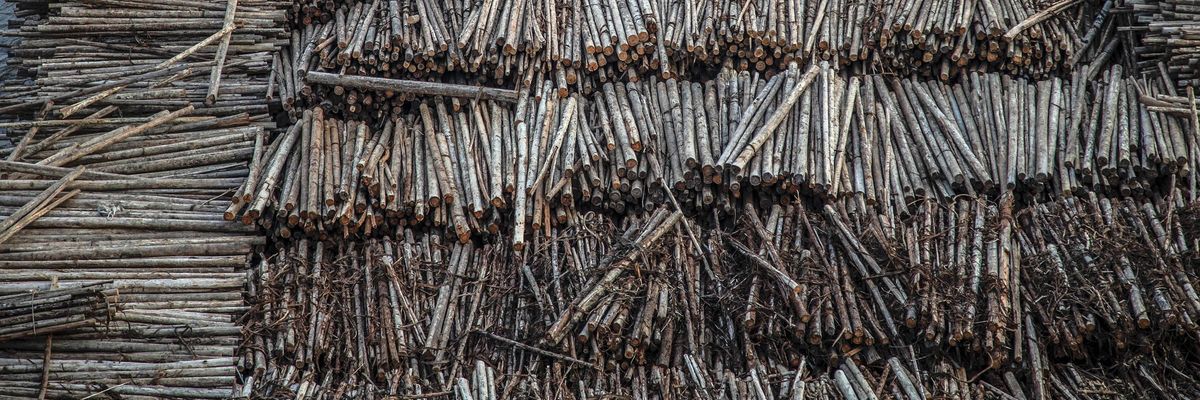Hopes that a deforestation pledge signed by over 120 countries at the ongoing COP26 summit could protect "the lungs of our planet" further dimmed after Indonesian officials suggested that the country won't actually follow through on the commitment.
"The ongoing development of [the president's] era should not cease in the name of carbon emissions or in the name of deforestation," Environment Minister Siti Nurbaya Bakar wrote on social media. "Forcing Indonesia to zero deforestation in 2030 [is] obviously inappropriate and unfair."
Indonesia's Deputy Foreign Minister Mahendra Siregar cast further doubt on the country's commitment to the pledge, asserting in a statement that "the declaration issued does not refer at all to the 'end [of] deforestation by 2030.'"
The rate of annual deforestation in Indonesia--the planet's largest producer of palm oil and home to the third-largest tropical forest in the world--is on the decline. Yet last year it sill lost 270 kilohectares of primary forest, according to Global Forest Watch, which called that loss the equivalent to 208 megatonnes of carbon emissions.
By signing the declaration at COP26 this week, nations committed "to working collectively to halt and reverse forest loss and land degradation by 2030 while delivering sustainable development and promoting an inclusive rural transformation." The signatories, according to the text, also promise "to conserve forests and other terrestrial ecosystems and accelerate their restoration" and to "implement and, if necessary, redesign, agricultural policies and programs to incentivize sustainable agriculture, promote food security, and benefit the environment."
There are 133 signatories to the document as of this writing, including the U.S., Brazil, and Indonesia.
U.K. Prime Minister Boris Johnson, whose government is hosting the U.N. summit, touted the agreement as "landmark action to end deforestation by 2030" and said that "with this pledge, we have a chance to end humanity's long history as nature's conqueror, and become its custodian."
For climate activists, however, the pledge was met with a heavy dose of doubt about it having any teeth, pointing to failed forest pledges from the not-so-distant past.
According to Greenpeace Brazil executive director Carolina Pasquali, Brazilian President Jair Bolsonaro's signature was telling.
"There's a very good reason Bolsonaro felt comfortable signing on to this new deal," she said. "It allows another decade of forest destruction and isn't binding. Meanwhile, the Amazon is already on the brink and can't survive years more deforestation."
" Indigenous Peoples are calling for 80% of the Amazon to be protected by 2025, and they're right, that's what's needed," said Pasquali. "The climate and the natural world can't afford this deal."
Friends of the Earth International, meanwhile, panned the pledge as "no more than a rebranding of previous flawed attempts to greenwash increased carbon emissions."
The group accused the pledge of being "riddled with hypocrisy and loopholes that risk allowing corporations and historically big polluting countries to keep emitting fossil fuels while claiming to tackle climate change by investing in forests. The finance pledges are eerily similar to discredited REDD+ initiatives which in the last 10 years have failed to stop climate change and caused large scale land grabbing and land rights violations globally."
"We don't need to 'achieve a balance between anthropogenic greenhouse gas emissions and removal by sinks' as the COP26 pledge claims," the group said.
What is needed, continued FOEI, is "immediate and deep cuts to carbon emissions and polluting activities such as plantations, industrial agriculture, and extractive industries, as well as the preservation of forests, other ecosystems, and the rights of the Indigenous Peoples and local communities who do protect them."
In order to achieve real change, the group argued, developed nations must immediately "commit trillions in climate finance," but not through market-based schemes like "carbon offsets" that have allowed overseas development funding to be captured by corporate interests under the guise of false industry-friendly conservation proposals.




